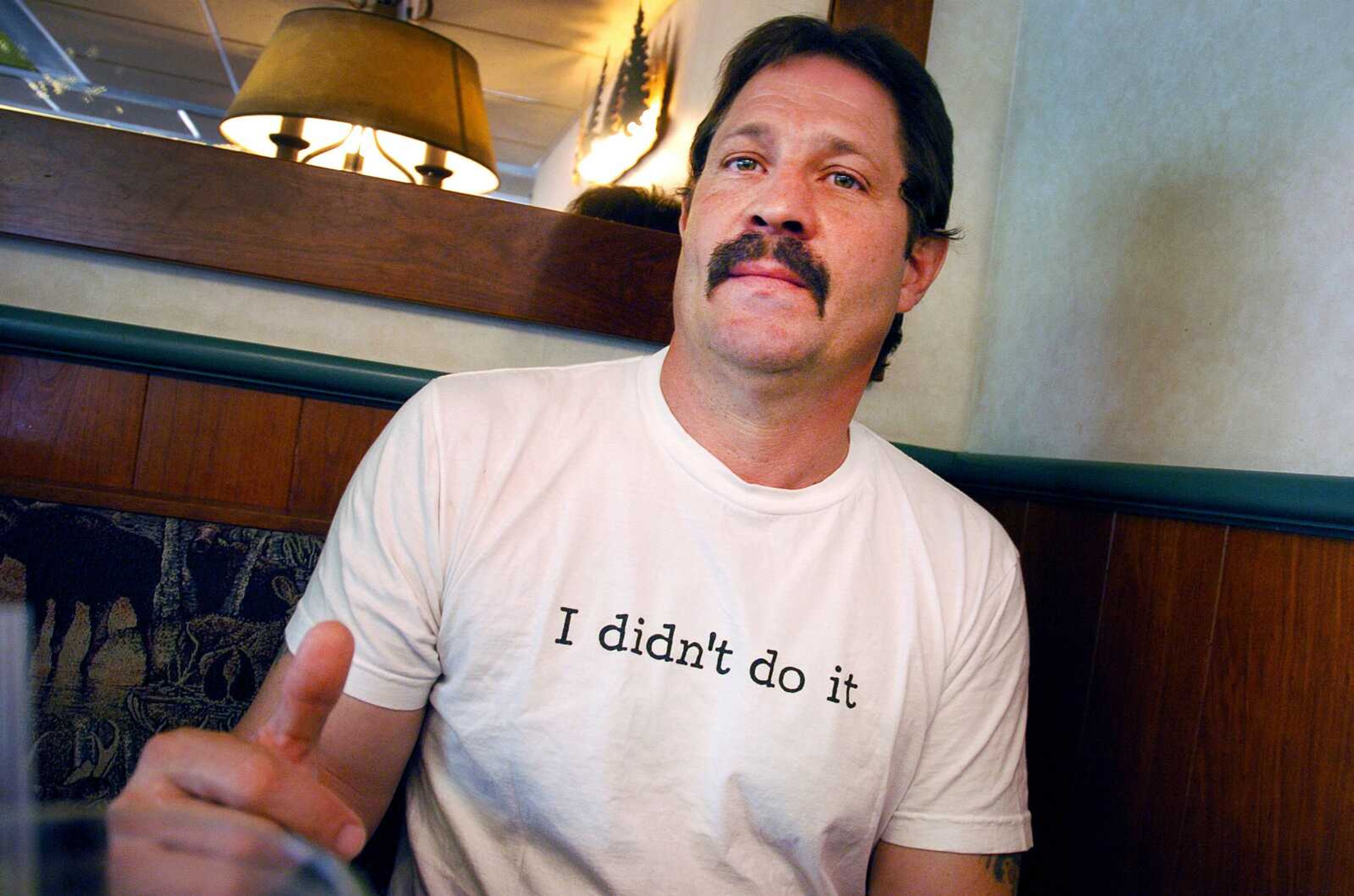Man freed after 3 decades in prison vows never to return
DEER LODGE, Mont. -- A man whose 100-year murder sentence was commuted by Montana's governor walked out of prison still clad in the blue shirt of an inmate, shivering in the 25-degree weather that greeted him after three decades of incarceration. Barry Beach, 53, fought to keep his composure Friday as he looked at the mountains in the distance and vowed never to return to Montana State Prison...
DEER LODGE, Mont. -- A man whose 100-year murder sentence was commuted by Montana's governor walked out of prison still clad in the blue shirt of an inmate, shivering in the 25-degree weather that greeted him after three decades of incarceration.
Barry Beach, 53, fought to keep his composure Friday as he looked at the mountains in the distance and vowed never to return to Montana State Prison.
"Here I am for the last time," he said. "For the last time, because they can't bring me back."
Beach had learned of his release only hours earlier, when his attorney showed up at the prison. Word then spread quickly through the Deer Lodge facility, and the guards he had come to know over the years lined up to say goodbye.
Yet the end of his long stint behind bars left unresolved the emotional wounds carried by the family of the victim, Beach's high-school classmate, Kimberly Nees.
The 17-year-old honor student's badly beaten body was found in a rural area of the Fort Peck Indian Reservation, alongside a river where teenagers gathered to party.
"Something has to be proven to me, and it hasn't been proven yet," said Glenna Nees Lockman, the victim's older cousin. She said she grew up down the street from Beach's family in the small town of Poplar.
"Someone has to be held accountable," Lockman said. "If it's not Barry Beach, go to court and prove who it is."
Rumors swirled for years Nees died in a fight among a gang of girls, and Beach was temporarily freed in 2011 when a retrial was ordered.
He was sent back to prison 18 months later. The Montana Supreme Court said in a 4-3 ruling that District Judge E. Wayne Phillips gave too much weight to testimony offered by new witnesses and failed to adequately consider forensic evidence that pointed to one attacker.
Beach said having to turn himself back in was the worst experience of his life, and there was still "a lot of healing and a lot of tears" to come.
"I knew it was going to be here someday," he said of his release. "The good Lord in heaven has always assured me that I'd reach this point. I never dreamed it was going to take this long."
Members of Kimberly Nees' family said Friday releasing Beach with so many questions unanswered was a mistake.
Lockman for years counted herself among those who believed in Beach's innocence. She said she became uncertain over the past two years and came to view him as "a con, a manipulator" who was willing to hurt others for his benefit.
Beach confessed to killing Nees in 1983 after authorities in Louisiana picked him up for an unrelated crime. He later said the confession was coerced, and his long campaign for freedom drew support from hundreds, including Democratic U.S. Sen. Jon Tester, former governor Brian Schweitzer and former Republican U.S. senator Conrad Burns.
Under Friday's clemency order from Democratic Gov. Steve Bullock, Beach will remain on probation for 10 years. Bullock noted Beach was only 17 at the time of Nees' death and exhibited good behavior in prison.
"Mr. Beach has demonstrated an extended period of good behavior both in and out of prison, and the reasons for maintaining his 100-year-without-parole sentence at taxpayer expense diminish with each passing year," Bullock wrote.
In his order, Bullock did not directly weigh in on whether Beach was innocent, and a spokesman said the governor would have no further comment on the issue.
Phillips, who has since retired from the bench, told The Associated Press on Friday he was pleased to see Beach finally free. Beach has proven he can handle life outside prison by staying employed and out of trouble when he was previously released, Phillips said.
"Even assuming that he was guilty, he's shown himself to be reformed. Isn't that the goal of the American justice system?" Phillips said.
The governor last year asked the state parole board to consider whether Beach served enough time in prison. State officials rejected Beach's request for clemency on four occasions. Last month, after receiving a fifth request, the parole board forwarded the matter to Bullock.
A new state law -- inspired in large part by Beach's case -- gives Montana's governor the final decision in clemency requests instead of the parole board.
During his time on the outside, Beach worked at the Clocktower Inn in Billings, Montana's largest city.
His mother, Bobbi Clincher, said Friday the hotel's owner had told her the job was still available for Beach, and she expected he would resume working there soon. Beach said his home in Billings is exactly how he left it, thanks to anonymous supporters.
"It's been a long haul. It really has," Clincher said. "He probably would like to take a little bit of time off, but there's the reality that he has to support himself."
Connect with the Southeast Missourian Newsroom:
For corrections to this story or other insights for the editor, click here. To submit a letter to the editor, click here. To learn about the Southeast Missourian’s AI Policy, click here.









